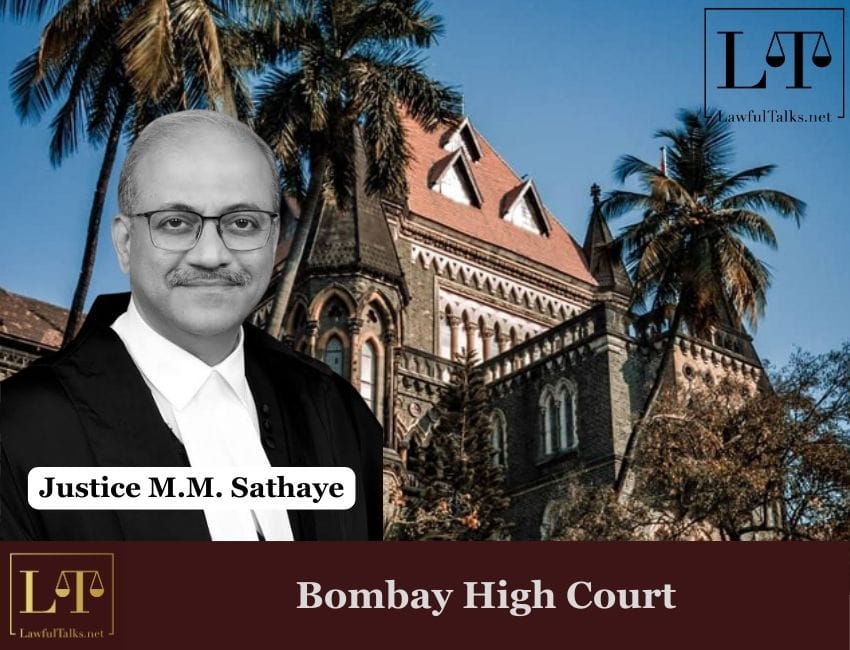Allahabad HC Sets Aside Afzal Ansari's Conviction, Allows Him to Continue as MP

In a significant and stern judgment, the Bombay High Court Bench comprising Justice M.M. Sathaye, denied interim bail in an application for suspension of sentence filed by a 73-year-old man convicted of raping and impregnating his mentally challenged house help.
Previously the trial court had convicted the elderly man after meticulous evaluation of the evidence, which included the victim’s testimony, medical reports, and expert evaluations of her mental condition. The victim, a house help with an IQ of only 42 percent, was unable to fully understand or consent to the sexual acts committed by the convict.

Further, the trial court noted the active role of the convict’s wife and sister-in-law in attempting to coerce the victim and her mother into silence. They pressured the victim to terminate the pregnancy and refrain from filing a police complaint, actions which the court considered as evidence of a coordinated effort to suppress the incident. Despite the convict’s plea for leniency on account of his age and health, the trial court imposed a stringent sentence, citing the need to ensure justice.
The trial court convicted the accused under multiple sections of the Indian Penal Code, including Sections 376(2)(f), 376(2)(j), 376(2)(k), 376(2)(l), and 376(2)(n), and imposed a 20-year rigorous imprisonment sentence along with a fine.
High Court’s Observations
In rejecting the application for interim bail, the Bombay High Court emphasized the following key aspects rooted in the principles of justice and the protection of vulnerable individuals:
Incapacity to Consent:
The High Court underscored that the victim’s mental condition rendered her incapable of providing informed consent. It noted:
“Though the victim was 23 years old at the time of incident (based on birth certificate Ex. 100), she has been found to be mentally retarded and her IQ has been found to be 42% as per psychiatrist report Ex. 69. Therefore, prima facie, consent aspect is not material.”
Attempts to Suppress the Incident:
Evidence presented in court revealed that the convict, along with his wife and sister-in-law, tried to pressure the victim and her mother to terminate the pregnancy and accept monetary compensation. The court viewed these actions as attempts to hush up the incident.
Conclusive DNA Evidence:
The DNA test conclusively established the applicant as the father of the child born to the victim, corroborating the allegations.
Distinction from Cited Precedents:
The applicant’s counsel relied on previous cases (Mohd. Salim Noor Mohd. Shaikh v. State of Maharashtra and Dhonduram Bhiku Tambe v. State of Maharashtra) to argue for bail. However, the Court noted that these cases involved different facts, including shorter sentences and circumstances where the victim did not support the prosecution's case. It held that these precedents did not advance the applicant’s case.
Nature of the Crime and Sentence:
The High Court observed that the sentence in this case was significant—20 years rigorous imprisonment—and was based on substantial evidence.
Court’s Decision
In rejecting the application, the Court stated:
“In the aforesaid facts and circumstances, I am not inclined to grant interim bail. The Application is accordingly rejected.”
However, considering the applicant’s advanced age, the Court directed that the appeal hearing be expedited to ensure timely adjudication.
Case Detail: Bhalchandra Shankar Mhatre v. State of Maharashtra (IA No. 176 of 2024 of Criminal Appeal No. 1282 of 2023)
Advocates For the Applicant: Adv. Aniket Vagal
Advocates For the Respondent: APP R.D. Humane and Harshad Inamdar.





























































































































































































































































































































































































































































































































































































































































































































































